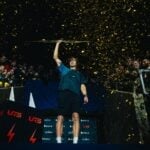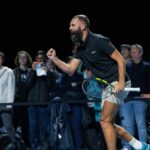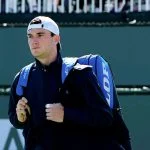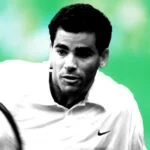Mouratoglou: “People will understand that UTS is not an exhibition but a competition – we have time”
Patrick Mouratoglou, chairman and founder of UTS, gives his takeaways after Oslo
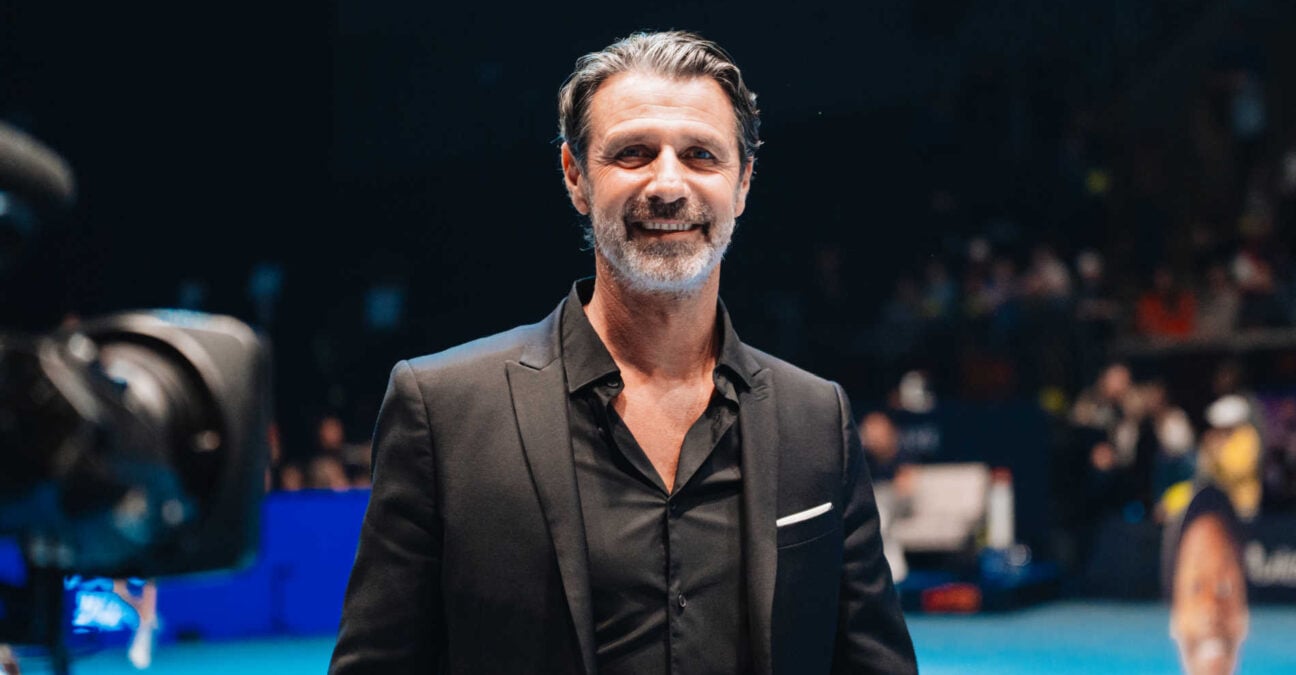 Patrick Mouratoglou, UTS Oslo 2024 | © Tennis Majors / UTS
Patrick Mouratoglou, UTS Oslo 2024 | © Tennis Majors / UTS
Patrick, you are the founder and CEO of UTS, what is your takeaway from the first 2024 stage in Oslo, Norway?
Patrick Mouratoglou: The first takeaway from this edition in 2024 in Oslo is the crowd, the atmosphere. UTS is so much about that, about the connection between the players and the crowd. In this regard, it was an incredible edition. The crowd was very, very involved. It was our first time in Oslo, in Norway – it was also my first time in Norway and I didn’t expect the crowd to be so into it, and I think it was an incredible success thanks to that. The crowd was involved everywhere UTS went. But I think this crowd, also because Casper Ruud was here as a local hero, brought something extra.
How do you rate the final, and the whole edition, in terms of level of play?
Patrick Mouratoglou: The final was great. I thought the final would be great, because they’re two incredible players with Andrey Rublev and Alex de Minaur. And together I know their games fit well and I knew both guys would try to play extremely fast. That’s just how they play. I knew there would be a lot of spectacular points. Also because The Demon, the way he moves on the court is unbelievable. And we had what we expected. Incredible rallies, fast pace all the time, pick-ups that were crazy from The Demon. We didn’t know who’s going to win. It was very close and a player was winning a quarter and suddenly the other one was catching up with him. So a lot of suspense, which is what we want, level of play and suspense.
We had two previous winners on stage for this final, for the first time. This is not by chance. Is there a prototype of a UTS player?
Patrick Mouratoglou: I don’t know if there is a prototype of UTS players, but I know that what we’ve seen so far is that the players who don’t rely too much on their serve have an advantage because they are players who are extremely good at rallying and, of course, both Rublo and The Demon are incredible baseline players. That’s also the reason why they are so good at UTS, but they are so good in general, they’re really top, top players. But it’s true that their games fit well UTS because they are so good on the baseline.
some players have explained that UTS has helped their overall game
Patrick Mouratoglou
It was a fourth tournament in seven months. Now UTS in public as a Tour is a real thing. Have you had feedback from the players on what this event brought on the table?
Patrick Mouratoglou: First they love to play it, it’s different from what they are used to playing and they really enjoy it. It’s an incredible pleasure for them. They play with always stadiums that are packed with an extremely involved crowd and that’s what players love the most. Once again, they chose this job because first they love the game but also because they love sharing with a crowd. So this is the first reason why they love so much UTS.
And the second I would say that some players have explained that UTS has helped their overall game, Bublik, just to name here The Bublik Enemy, he said to me that before, he was doubting that he could rally with those top guys, and he was relying a lot on his serve. With UTS he had no option than to rally and he said to me it gave him so much confidence in his baseline game. And when he comes back on the ATP tour, and he has his serve on top of it, it makes him a much better player. And we see often that players compete at UTS and the following weeks and months they make extremely good results. We’ve seen that a lot. And for sure, if you think about it, they play a lot more rallies, they have less time to recover. So their cardio improves a lot. They hit so many balls from the baseline. So they get an incredible rhythm in their game. And when they come back to the tour and they can use another weapon that they cannot use at UTS, then their game goes to another level.
As general manager you had a few tough moments during this edition, with Gael's disqualification and two sick players on Day 2. Tell us what happened behind the scenes.
Patrick Mouratoglou: That was a really special edition for us. Thankfully the crowd didn’t mention that much. It was very challenging because we had to take a decision regarding Gael, and then unfortunately two players get sick, and sick to the point that they couldn’t play. So we had three players out during the competition, which never happened before. We had only two guys who could take their spots, so we had to cancel one match. But again, it didn’t affect the competition. The competition was great. The show was great. And nobody really noticed it. Of course, the fans of Gael noticed that he wasn’t there anymore. Same for the ones of Holger [Rune] and the ones of Dominic Thiem, but it didn’t affect the show. A lot of tough decisions to take, but we could manage.
People have been asking how you can be disqualified from an exhibition. Specially in an event like UTS who proudly has a loosened code of conduct.
Patrick Mouratoglou: First thing, you can be defaulted in a competition, and we are a competition. We’re not an exhibition. I know it will take time for people to understand it. We are not in a rush. We have time. Time works for us. So people will understand that this is not an exhibition and it’s an only prize-money-based competition. Players don’t have an appearance fee, like sometimes even in competitions they get them. We don’t pay the players to come, they come and they earn as much as they win. So I can tell you that they really want to win and so it’s a competition, there is a winner. There is a world ranking. And there is a world champion at the end of the season. So that’s the first thing. So you can be defaulted from a competition.
Second, yes, there is a loosened code of conduct, because the point is to let the players express themselves much more and feel more free in the court and free to share also with the crowd, and also maybe tackle their opponent verbally. That’s one of the concepts of UTS. But even when the code of conduct is loosened, there are rules and there has to be limits, and unfortunately, the limits were crossed by Gael. He didn’t mean anything bad but sometimes you don’t mean bad and you do things that you have to pay the price for. So it’s unfortunate, we love Gael, I love Gael, I have known Gael for 20 years. We are friends. But when we have to take a decision as organisers of the competition, we do have to take those decisions and we took them.
People are surprised you did not give more detail. Why do you not want to give more detail of what happened in the "playful situation" who led to an injury?
Patrick Mouratoglou: We didn’t give more details because it happened behind the scenes. It was not on the court, it was outside of the court, and it’s between us and the people involved in what happened. And that’s it. That’s our decision. Gael understands. Gael apologised and he was feeling bad because he didn’t mean bad at all. But that’s how it is.
What's the place of UTS in the regular calendar? The question is quite open today as an exhibition in Saudi Arabia has been announced is October and that the birth of a new league is, as it seems, an option for several actors.
Patrick Mouratoglou: The ATP and the Grand Slams are the regular system, it’s what tennis is today. Then you have some exhibitions, and you have UTS, which is both a competition and a league. UTS’s goal is to find its place in the calendar and bring new fans into the sport, who will then be able to follow the historical tournaments and format. We do this for the benefit of tennis in general because it needs younger fans. Tennis struggle to get younger fans and I think we are working for tennis, for the good of tennis and for all the tennis industry that needs to get new fans and younger fans on board for the future of our sport.
The first 2024 stage was in Oslo. What do we know now about the next ones?
Patrick Mouratoglou: We can say that we’re going to have four events in 2024. The first one was Oslo and the three remaining ones you’ll hear about very soon. The next one will be in the US, the week before the US Open. Then we’ll have one in October. in Europe. And then we’ll have the grand final in December.




